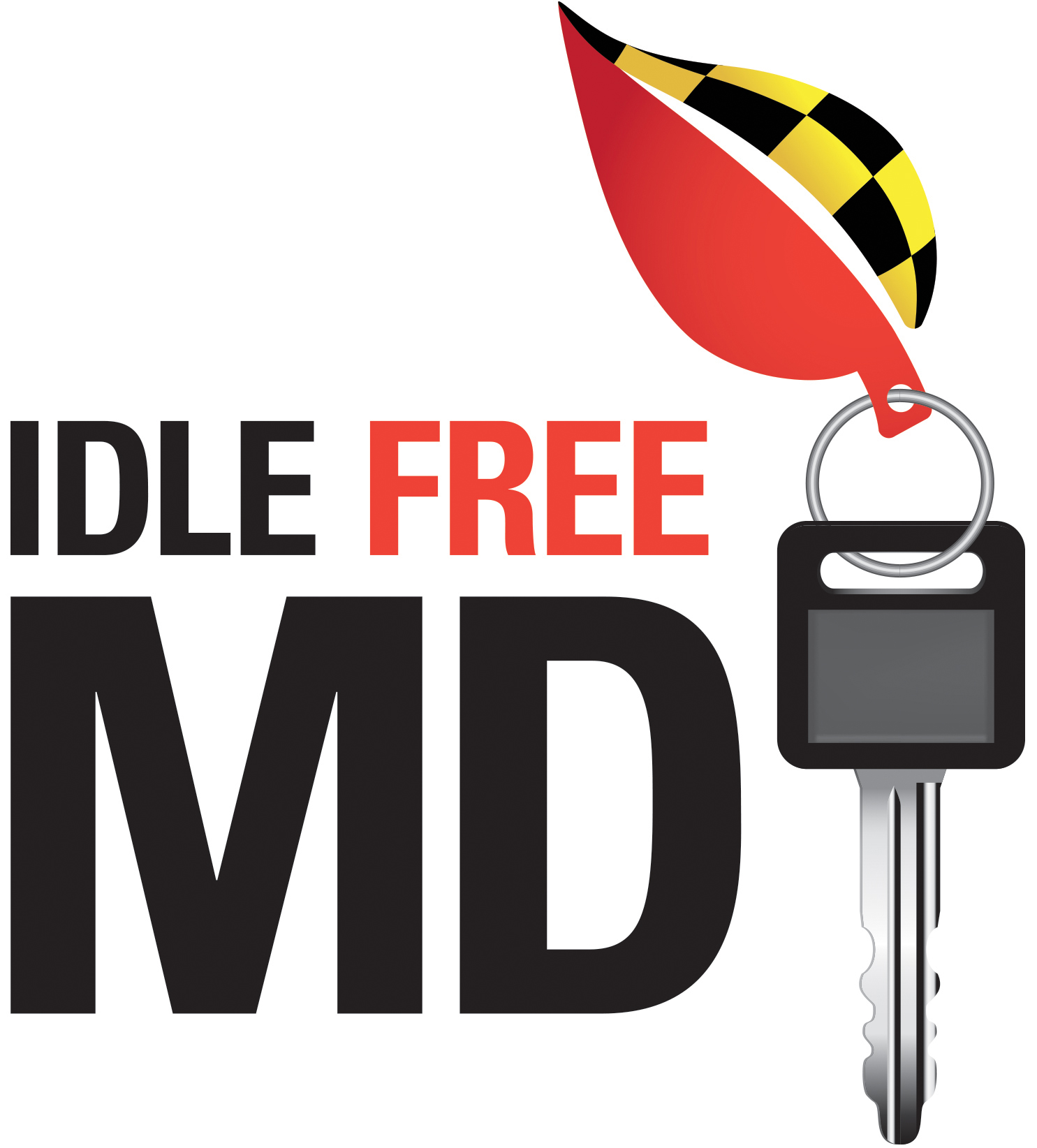 In Maryland, you’re not legally allowed to idle longer than five minutes, yet engines benefit from being turned off after 10 seconds. Since idling emits pollutants that are harmful to the lungs, the less you idle, the better.
In Maryland, you’re not legally allowed to idle longer than five minutes, yet engines benefit from being turned off after 10 seconds. Since idling emits pollutants that are harmful to the lungs, the less you idle, the better.
Why Avoid Idling:
- There’s no benefit to leaving your vehicle running while loading/unloading cargo or passengers.
- Turn your engine off to avoid exposing lungs to ground-level exhaust fumes.
- Today’s electronic engines don’t need to warm up— even in the winter.
- A vehicle in motion will deliver warm air to the cabin faster than one that’s idling.
How to Avoid Idling:
- Avoid revving the engine and begin driving right after you start your car.
- A vehicle in motion will deliver warm air to the cabin faster than one that’s idling.
- Avoid drive-thru windows and go inside instead.
- Avoid idling while waiting for passengers, stopping for trains, and pulling over to eat or use a mobile device.
- Talk to the people in your life about why idling is important.
- Make recognizing the opportunities for idle reduction a team effort when you ride with others. Visit mde.maryland.gov/idlefreeMD for more resources to help you start the conversation.
Maryland Law
Maryland Law Related to the DVECP (Transportation Article Sections 23-401 to 23-404)
- Engine Idling: A motor vehicle may not be allowed to idle for more than five consecutive minutes when the vehicle is not in motion, with the following exceptions: the vehicle is stopped due to traffic conditions or mechanical difficulties; the engine is operating heating and cooling or auxiliary equipment; to bring the engine to the manufacturer’s recommended operating temperature, or to accomplish the intended use of the vehicle.
- Unattended Motor Vehicle: A person driving or otherwise in charge of a motor vehicle may not leave it unattended until the engine is stopped, the ignition locked, the key removed, the brake effectively set.
Idling’s Impact On Maryland Communities
- 2 minutes of idling uses the same amount of gas as one mile of driving
- 1 minute of idling produces more carbon monoxide than 3 packs of cigarettes
- Exhaust pollutants cause cancer and birth defects
- Wastes about 6 billion gallons of fuel each year in the U.S.
- ⅓ of the nitrogen in the Chesapeake Bay comes from air pollution
- Causes 5% increase in fuel consumption, by leaving residue on spark plugs
- Emits about as much CO2 each year as 2.5 coal-fired power plants
HEALTH RISKS
According to the Earth Policy Institute, more than three million people die each year from the effects of air pollution. Tailpipe emissions that form ground level ozone can lead to a variety of serious health conditions. That’s why it’s important to be aware of how idling impacts those around you and turn your engine off at every opportunity.
- Car exhaust contains air pollutants that can cause cancer, respiratory issues, reproductive effects, birth defects, and other serious illnesses.
- One minute of idling produces more carbon monoxide than three packs of cigarettes.
- Exposure to vehicle exhaust increases the risk of death from heart and lung disease.
- Children breathe 50% more air per pound than adults. Because of their developing lungs and higher breathing rates, air pollution is especially dangerous to children.
- Car exhaust increases the symptoms of asthma—the most common chronic illness in children, and the cause of most school absences.
WASTE AND COST
No one would knowingly purchase a vehicle that guzzled gas while getting zero miles to the gallon. Yet that’s what happens when we idle. Wasteful and unnecessary, idling is harder on engines and less fuel-efficient than driving. Consider the economic impact of idling the next time you’re behind the wheel.
- Idling leaves residue on spark plugs, increases fuel consumption by up to 5% and can reduce the life of your exhaust system.
- Excessive idling can damage your engine and add as much as $2,000 per year in maintenance costs.
- Idling consumes up to a gallon of fuel an hour and wastes about six billion gallons of fuel each year.
- The average person wastes ~1-2 tanks of gas each year by idling.
- Idling for more than 10 seconds consumes more fuel than restarting your engine.
ENVIRONMENTAL IMPACT
Idling doesn’t just affect air quality. It puts the entire ecosystem at risk. Related pollution impacts streams, rivers, lakes, bays, and coastal waters. If everyone in Maryland eliminated unnecessary idling, local ecosystems would be healthier.
- Each gallon of fuel burned emits about 20 lbs of CO2 and introduces nitrogen into the atmosphere.
- Over the course of a year, one car idling for just 5 minutes each day can emit 25 lbs of harmful air pollutants and 260 lbs of CO2.
- Excess nitrogen can fuel the growth of algae blooms in the bay, which can block sunlight from reaching underwater grasses and create low oxygen “dead zones” that suffocate marine life.
- Airborne nitrogen is one of the largest sources of pollution affecting the Chesapeake Bay and its tributaries. Poor water quality affects submerged bay grasses, blue crab, oysters, and fish species.